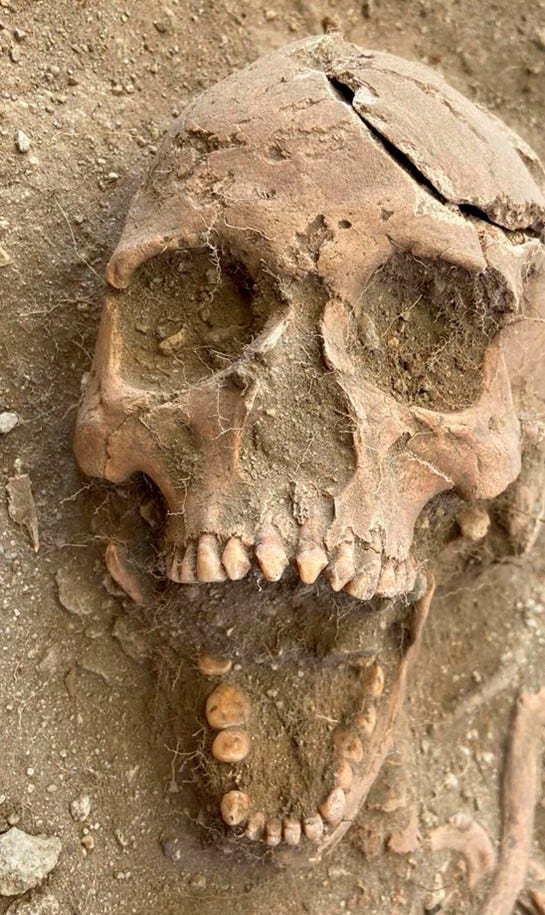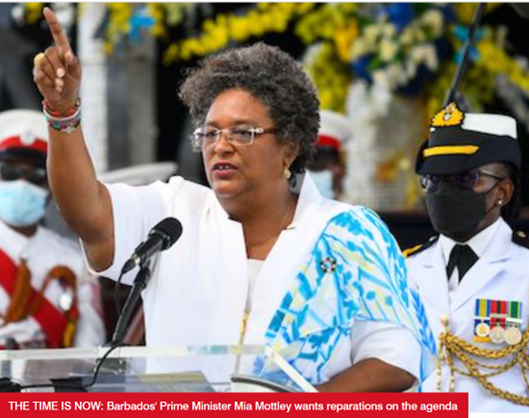In 1650 the most important colony in the British Empire, the jewel in the imperial crown, was not India, or Egypt or South Africa. It was Barbados, the small eastern-most island in the Caribbean.
It was here the English (officially Britain itself did not exist until the union with Scotland in 1707) began industrialising and professionalising an incredibly lucrative new industry, pioneering new ways of mass producing at extremely low cost one of the most desirable commodities in the world.
This new method of production was so successful it would be exported and adopted across the Caribbean and the USA.
The commodity? Sugar. The method of production? Slavery.
Genocide
Barbados was ground zero for the development of the brutal system of kidnapping hundreds of thousands of Africans and work them to death in plantations. Whilst slavery had already been brought to the Caribbean by the Spanish, Barbados was the first large scale, legally codified black slave society, and became a model for the whole system of trans-Atlantic slavery. A system whose inhumanity is hard to grasp and truly get one’s head around. This was genocide – of over 2 million slaves shipped to the West Indies, at the time of abolition only 670,000 remained.
In Barbados, the excavations of slave skeletons and the science of bioarcheology can give some insight.

Their average life expectancy was 18 years. The skeletons show multiple lesions reflecting the many injuries sustained producing sugar and from untreated abscesses and ulcers. The majority of the slaves in the field were women, worked to death. Due to the brutality of life, women stopped menstruating and were often unable to have children.
This, plus the high levels of disease, required the constant resupply of slaves taken from Africa and chained tightly below deck in equally terrible conditions.
Building a lucrative new model of slave plantations
Barbados offered a vision of a profitable colonialism that had, thus far, proved relatively elusive to the British. They developed a colonialism based not just on brutal extraction, but an economic version that tied this to trade and mercantilism, forming the basis of the future empire where, famously, the English radical Ernest Jones said ‘the sun never sets, and the blood never dries’. Tellingly it is the first bit of this quote that is repeated again and again, and the second that is largely forgotten. This method of using African slaves for plantation agriculture was copied across the Caribbean, Latin America and in the Carolinas in what is now the south of the USA. In fact, it was Barbadian entrepreneurial British planters and slave owners who decamped to the USA to set up the system of cotton slavery.
Slavery and sugar would form the backbone of the UK economy for hundreds of years. By 1800, the value of all slave-related industries was around 11% of British GDP, approximately 350 billion pounds in today’s money.
And of course, although in some ways all of Britain benefited from the economic benefits of slavery and empire, the main beneficiaries were not the poorest wage slaves in factories in Manchester, with life expectancy themselves virtually the same as that of slaves in Barbados.
The biggest winners were the rich and the newly emerging middle class.
The huge wealth generated for the British upper class by slavery
From the outset in Barbados and in the rest of the Caribbean, one of the direct beneficiaries was the King. In 1660, the Duke of York, who later became King James II, established the Royal African Company. This was massively involved in the slave trade, transporting nearly 200,000 slaves from Africa, many of whom were branded ‘DY’, which stood for the Duke of York.
It wasn’t just the Royal Family; whole swathes of upper-class Britons benefitted from the slave trade, whether as direct owners of plantations or investors. We know this partly because of the fact that when the slave trade was banned, £20 million – 40% of the treasury’s tax receipts at the time and the equivalent of around £2 billion today – was paid out to 46,000 slave owners as compensation for the loss of their property. Among the recipients were a long list of the rich and the powerful; the biggest recipient was the father of William Gladstone. The UK government only finished paying of the debts incurred to pay for this compensation in 2015.
The establishment kept meticulous records as to who received these compensation payments.
In Barbados, the Church of England was big slave owner, as were many MPs and members of the British aristocracy.
You can still today look round a plantation in the north of the island owned by the forebears of actor Benedict Cumberbatch, who himself starred as a slave owner in the amazing film ’12 Years A Slave’. Cumberbatch himself has been very open about this family history and spoken out against racism repeatedly.
Barbados demanding reparations
The fiery and truly impressive Barbadian Prime Minister Mia Mottley has been one of the most vocal leaders in the Caribbean calling for reparations. His government is making plans to demand reparations from the descendants of slave owners. They include the Tory MP Richard Drax, whose family played a pivotal role in developing the system of slave plantations and derived major financial benefits. To this day, the Drax family remains a hugely wealthy one. The MP has reportedly met with Mia Mottley to discuss this.
The Barbados government has not ruled out pursuing the British Royal Family itself in the quest for reparative justice.
In late 2021 Barbados also chose to become a republic and no longer have the King or Queen as their head of state. It has plans to build a globally important slavery museum on the island.
Keynes was the economist who best described the ‘miracle of compound interest’; that ten pounds, invested wisely two or three hundred years ago, could be worth millions, even billions of pounds today.
When we discuss global wealth inequality today, it tends to be a discussion of the current scale of it, or perhaps trends in wealth growth in the last few decades. It is easy to forget that in Europe in particular, the reason many of the richest people are so rich is because their wealth was first gained hundreds of years ago, through theft, murder, empire and slavery.
Equally true is that the legacy of slavery for the slaves and their descendants continues to this day. Haiti, which was at the forefront of the most spectacular slave revolt and revolution led by the amazing Toussaint L’overture, has been made to pay for this crime ever since.
Barbados today
Fortunately, with progressive governments and democracy since independence, Barbados has been able to build a peaceful and relatively equal nation.
Unlike other Caribbean nations like Guyana or Jamaica, Barbados does not have high levels of inequality, and with them the high levels of crime and violence that plague other nations. They have a Gini coefficient of around 0.35, which is similar to most countries in Europe.
It has a system of relatively progressive taxation, most notably through a land tax that is steeply progressive. The country’s healthcare system and education system is free, provided by government and funded through taxation. Crime is the lowest in the Caribbean.
There is of course still considerable poverty on the island. White Barbadians, or Barbadians of mixed or white descent, are still much more likely to be richer or in senior positions, although this too is gradually changing. Despite its progressive tax system at home, Barbados is also a tax haven. Per capita, Barbados remains one of the most highly indebted countries in the world too, and recently defaulted on its debt although it has successfully renegotiated with its creditors.
As well as the demand for reparations, Prime Minister Mottley has also made incredible speeches at the UN on climate breakdown and is leading the charge in pushing for a dramatic increase in the amount of money available to developing nations. This has developed a lot of momentum in recent months into what has been called the ‘Bridgetown Agenda’ – named specifically after the capital of Barbados.
From having been made the incubating site of the most horrific systems of human oppression imaginable, to now playing an outsized role in demanding justice and redress for historic and current global inequality – it seems once again this small island is making waves across the world.
END.
Author: Max is the Head of Inequality Policy at Oxfam International & EQUALS Podcast co-host. He is also Chair of the Global People’s Vaccine Alliance.
If you want to know more about the call for reparations, listen to our two part EQUALS podcast on this topic which is brilliant.
Read and subscribe to our EQUALS Substack Newsletter.





